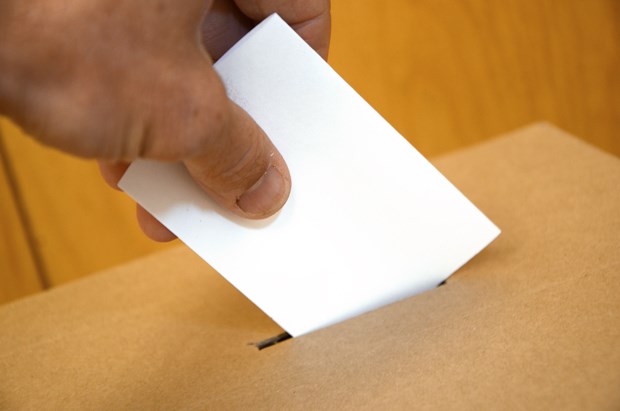While more than 70 local candidates are battling it out for the hearts and minds of voters in the current civic election, for two veteran politicians the campaign is already over.
But both West Vancouver Mayor Michael Smith - acclaimed for the second time - and District of North Vancouver Mayor Richard Walton, who was also acclaimed, say that doesn't mean democracy's been cheated in their communities.
Smith said he was expecting an election for mayor.
"There was one councillor who I thought had been running for mayor for the last three years," he said - and Smith added he was ready to take on a challenger with a big group of supporters "An election is good," he said. "I'm certainly not afraid of defending my record and talking about my vision for the community. But nobody chose to run, so that's it." Smith said he owes his acclamation to the support he has in the community.
"I think people who were interested in running went out and tested the water and found that was true and they chose not to run," he said.
"I'm not saying my record is perfect or there aren't people in West Van who wouldn't be happy if I dropped off a cliff," he added. But "the majority of West Van residents are reasonably satisfied with the job I've done."
Walton is also happy to be continuing as mayor in the District of North Vancouver.
"I love my job and hopefully it radiates in the hours and the care I put into it," he said.
Walton said he's made no secret of the fact he'd be seeking another term and acknowledged, "It's tough to knock off an incumbent unless there's an overwhelming issue facing the community." He added running for mayor isn't something most people do out of the blue - candidates often (although not always) have served in other political roles on council or school board or be prominent in other community service groups before they throw their hat into the ring. "When I ran for mayor 10 years ago, it was part of a long pattern of working within the community," he said.
The cost and stress of election campaigns can be off-putting for some candidates too, said Walton. "It's hundreds of hours. It's a huge time commitment. It's stressful." Even an incumbent in an area like the North Shore can spend between $15,000 and $20,000 on a campaign, he said.
Smith said the most he has spent on a campaign is $6,000. Walton added although the public tends to be more interested in mayoralty races than council elections, almost all of a mayor's authority comes from council. "I really can't do much without council," he said.
Acclamations for mayor aren't that unusual, said Patrick Smith, professor of political science at Simon Fraser University. In the last round of civic elections, mayors in 12 out of 160 municipalities were acclaimed, he said.
Over the long haul, he said, acclamation isn't desirable. "Democracy's about choice, about people being able to work out political differences. We don't think the same way all the time."
Urban municipalities are also big business, with control over large budgets, he said. So "it should matter" who is elected. Incumbents almost always have the advantage, said Smith - a lot of that through name recognition. Any challenger would probably need to have built a base of community support, he added.
Michael Smith said even though his own election is over, he'll be taking part in the campaign as much as possible to encourage voter turnout. "I'm doing absolutely everything I can to get people out to vote," he said.



